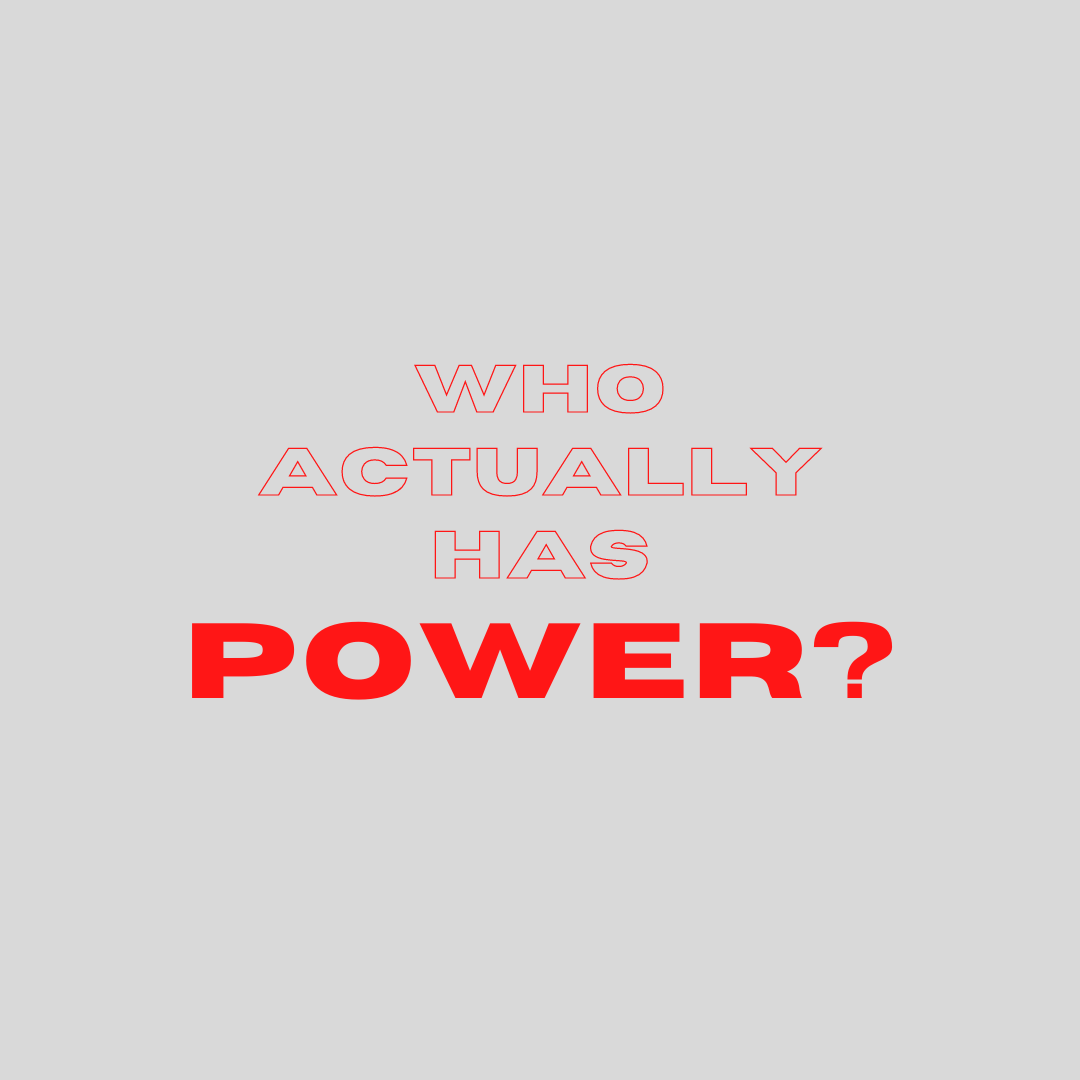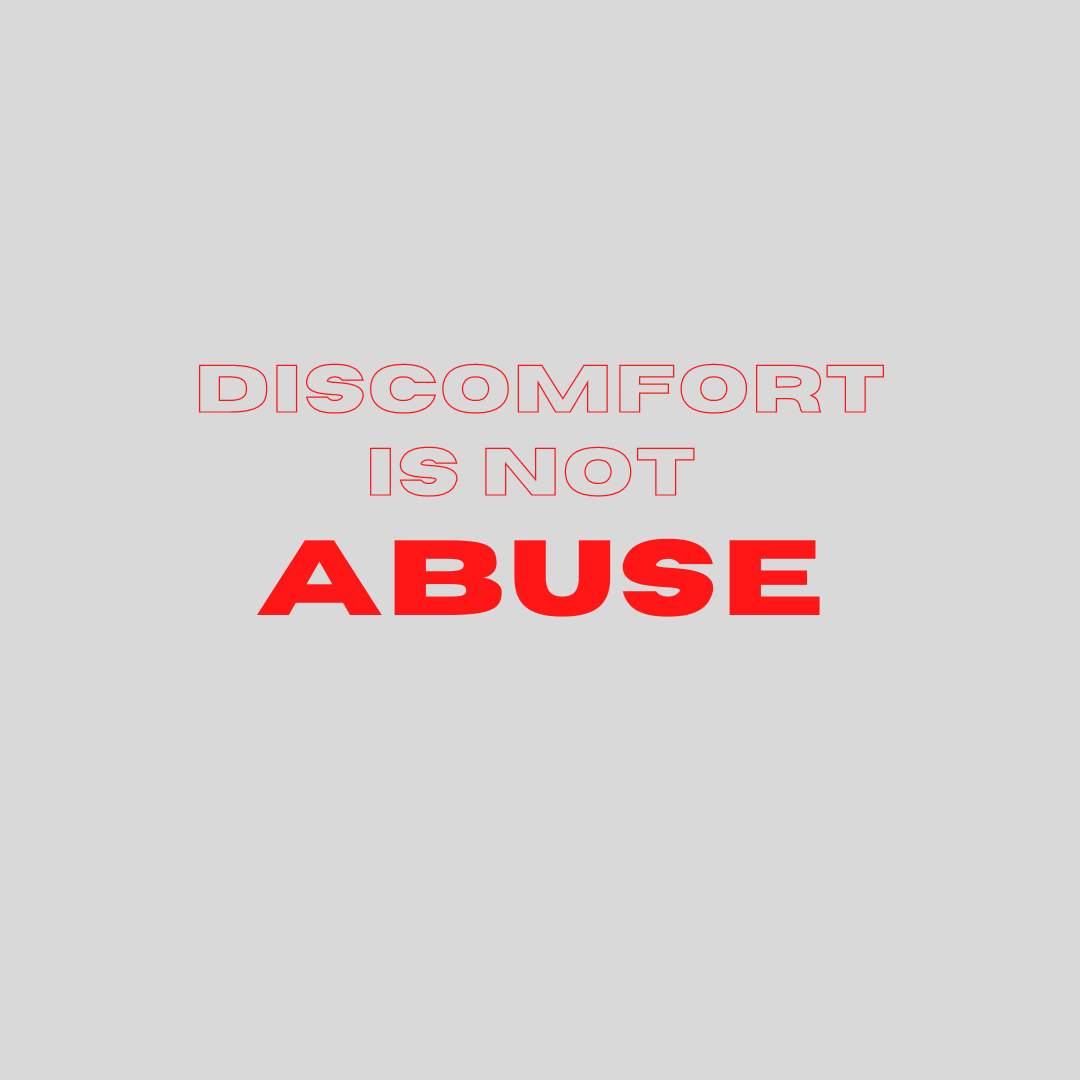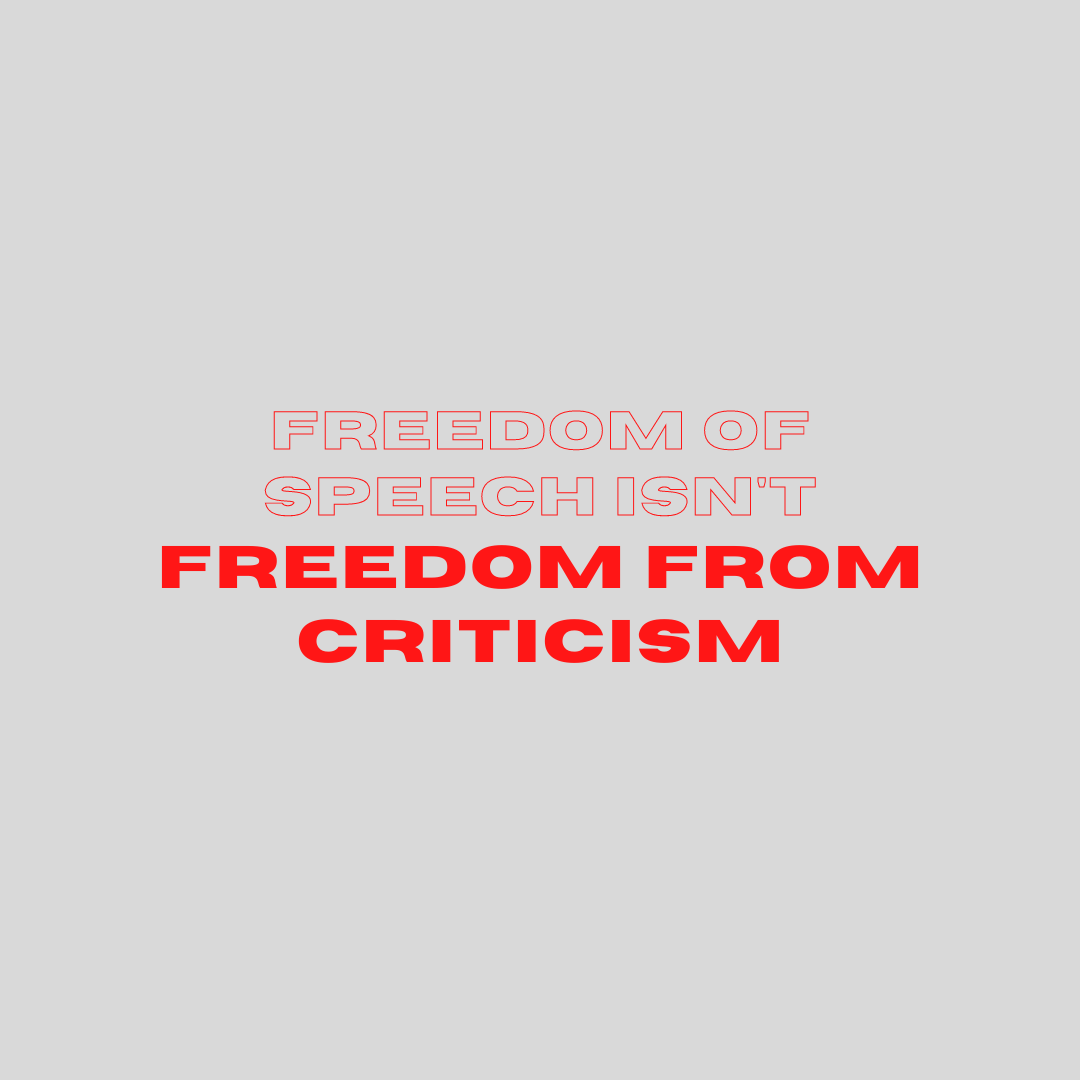I recently received an extremely heartfelt email, asking for my views on online discourse, self-censorship, and ‘cancel culture’. I replied to the email directly, but since there was also a request for me to publish at least some of my response for a wider audience, I thought I’d make this subject the focus of this week’s special issue.
A lot of our public life is now lived online, particularly on social media. This might feel especially true in a place like Singapore, where freedom of expression and assembly is restricted, placing obstacles in the way of free speech in physical/offline settings. And it’s been further exacerbated by COVID-19; when we’re in lockdown, or trying to reduce the amount of time we spend outside of our own homes, social media feels even more like the be-all-and-end-all of social and public life.
There’s been talk in Singapore of ‘cancel culture’ and ‘woke mobs’, and how people who don’t fall in line or conform to progressive thought and speech on social media might get piled on and ‘cancelled’. Some worry that there isn’t space for ‘moderate’ discourse anymore; that online, the tyranny of the ‘internet mob’ rules and oppresses as much as one might be oppressed by the People’s Action Party and its establishment, and that we’re “merely replacing one form of tyranny with another.”
But are we?
Remember power dynamics
If anyone out there feels caught between the pressures of being intimidated by progressive Twitter/Facebook/Instagram users and of being targeted by the People’s Action Party and its government, ask yourself, who really has power here?
The ‘Internet lynch mob’ and the PAP. They might appear diametrically opposed, but they are not equal and opposite forces. Millennials and zoomers might be able to flood your mentions for a time, and if you’re a public figure associated with particular brands or companies they might be able to organise a boycott (as people have done for years and years, before anyone had ever heard of the term ‘cancel culture’), but that’s usually the extent of it. If the brands or companies associated with you, based on whatever calculus they operate by, choose not to distance themselves from you but instead stick with you, there isn’t a lot these millennials or zoomers can do except make some noise. But noise isn’t power.
The PAP, though, has actual power. It, and the successive governments it’s formed, has greylisted/blacklisted people — making it difficult or impossible for them to get, or hold on to, jobs — has denied or revoked visas, has sued or jailed or bankrupted individuals. The ruling party has passed, amended, and even expanded legislation that actively suppresses freedom of expression or assembly, or at least dangles the threat of repercussions (like fines or even imprisonment) over one’s head. They have, at their disposal, more levers of control over our lives than even the most zealous Twitter user could ever muster.

Leftist, progressive voices are not the ones in power in Singapore. They might sound loud in some corners of the Internet — depending on who you’re friends with or follow on social media — but if we look at Singapore’s political landscape, they aren’t dominant or powerful actors.
If we really could replace one tyranny with another, I’d opt to replace the PAP’s oppression with woke social media. I can mute notifications on my phone, but I couldn’t mute the police when they came to my house with a letter summoning me for interrogation.
Sitting with discomfort
I do feel for people who are apprehensive about getting dog-piled on the Internet. I’ve had enough experience of being trolled and yelled at on the Internet — and not always solely from pro-PAP trolls; I believe my anti-death penalty work can and does attract disapproval across party lines — to know that it can be unpleasant, distressing, and draining.
But sometimes dog-piling is not dog-piling. As I mentioned in a previous issue, purpose and motivation make a difference. Bad faith arguments, abuse, harassment and threats are terrible and deserve condemnation, but if someone’s been racist, for example, it’s not dog-piling if lots of people are calling them out for that behaviour. (Sure, perhaps some of those people might be jumping on the bandwagon, but that’s a widespread human behaviour neither confined to online spaces nor progressive circles.) ‘Getting ratio-ed’ is not the same as getting bullied, harassed, or abused. Sometimes people deserve to get ratio-ed.

When we put ourselves out there and address the public — as we do if we publish publicly on Twitter or Facebook — we are inviting not just agreement and adoration, but also disagreement and criticism. Part of putting ourselves out there is that people will talk to, and about, us, and not always in ways or language that we’d prefer.
The ability to figure out the difference between when we’re being unfairly bullied and when we’re being called out for a mistake or statement(s) that has caused hurt/harm, or contributed towards systems or attitudes that cause hurt/harm, requires the ability to be able to deal with discomfort.
It feels bad to get called out or slammed, especially when other people can see (and then you can see them liking, retweeting, or sharing that call-out). But that doesn’t automatically mean that you’re being oppressed or bullied. At this point it’s up to you to
- reflect on what you’ve done or said, how it might have been received and what its impact might be,
- decide whether there’s any merit to the criticism, anything that you could and should learn from, as well as whether there’s anything you should or would like to apologise for,
- figure out if you might want to change your mind, based on the different arguments or perspectives that have surfaced, or
- stick to your guns because you don’t think you’ve done anything wrong and you feel strongly about the arguments you’ve made.
After you’ve thought about these things, then you can work out how you might want to proceed.
(NOTE: I know that this is in “easier said than done” territory. And no one gets it right all the time. I struggle with this too; my first instinct is usually to feel stung and hurt and defensive, and I’m not always able to make myself take that step back to reflect. But this is something that we have to figure out for ourselves, rather than immediately feeling victimised.)
What do you stand for?
Open discourse is messy and noisy. Lots of people have lots of different perspectives and arguments and feelings about a whole variety of issues and subjects. People have different ways of expressing themselves, different ways of communicating. Sometimes people are abrasive, or even offensive. If we want to build a democratic society with freedom of expression and where different points of view can be shared, we’re going to have to live with this messiness, and learn how to navigate it.
Also, to put it very bluntly, if one wants to make public statements, it takes some guts. We have to be prepared for disagreement and conflict — even vehement ones. As long as they don’t cross the line into abuse or advocating violence or inciting harm, this sort of disagreement and conflict is part and parcel of open discourse.

If you believe that the issue or argument that you want to raise is so important, then have the courage to raise it even if you think people online might disagree with you. Activists in Singapore have been doing this for years, against a power with the ability to exact very real and material consequences — the civil society that we have today is built on the bravery of people who shouted about anti-colonialism (when they could have been, and did get, really ‘cancelled’ via detention without trial), about gender justice, about migrant workers’ rights, about LGBT rights, about the death penalty, etc. even when their positions were not accepted by the majority. Many activists have, and still do, raised their heads above the parapet to make their arguments, even when scorn and outrage and smears (facilitated not just via social media, but by the mainstream media) were heaped upon them.
In this context, when someone tells me that they’re too afraid to speak up for what they believe in, or that media outlets might skew their editorial decisions, because they’re afraid of the ‘woke mob’ on social media, I really have to ask, “What do you [individual, or media outlet] stand for?”
What’s important to you? What would you brave some online backlash for? Is there a figurative hill that you’re willing to die on?
I say this not as a way to judge or imply that people who hesitate are cowards, but to point out that freedom of expression never means freedom from criticism, and if we choose to wait for scenarios where there is no risk of us being made uncomfortable through conflict, disagreement, or criticism before we’re willing to speak our minds, then we’ll likely be waiting for a very long time.
On the other side
All that I’ve written so far comes from the perspective of us being the OP (original poster). But it’s also important to think of ourselves in the role of respondents, which is actually probably a more common position for most of us.
A lot of what I’ve said applies to when we’re respondents too; having the freedom to respond also doesn’t mean there’s freedom from consequences, and self-reflection and awareness is important. Often we respond to things, or jump on bandwagons, or say things that are solely performative, because it makes us feel good and gets validation from our social networks. I don’t think there’s anything inherently wrong or bad about that — we all do it, and likely much more than we might even realise — but it doesn’t hurt to be reflective about the things we do and say.
Lastly… what is ‘moderate’?
Before ending off this issue, I’d also like to respond to the headline of the article I linked at the top: “Can There Be A Moderate Middle in Singapore’s Public Discourse?”
This question of whether there is space for moderates in what is described as a very ‘polarised’ climate in Singapore isn’t new. It’s why the now-defunct news site was called The Middle Ground, remember?
My question to this is: moderate/middle ground, in relation to what?
I return again to power dynamics. We don’t live in a society where there are two equally powerful sides, and people can comfortably argue for a centrist “third way” between the two. We live in a society where one side holds most of, if not all, the cards. And that side gets to determine — through the education system, through the mainstream media, through policies and laws and speeches and nationwide campaigns — what is ‘normal’ and ‘accepted’ and ‘hard truths’, and by extension, what is ‘radical’ and ‘dangerous’ and ‘inappropriate’. In this context, what is ‘moderate’?
An example: I don’t think it’s radical or extreme to say that queer people should have access to the same rights as straight people, including same-sex marriage and adoption of children. Actually, I think it’s pretty damn extreme to have a law that criminalises even consensual sex between men, and policies that say positive portrayals of LGBT relationships have to be censored, with obstacles that make it difficult for LGBT groups to register as officially recognised organisations. But I’m not the one with the power in Singapore, which is why S377A and censorship has been normalised as part of the status quo, and it’s LGBT activists who are cast as the ones who are radical, noisy and demanding. In this context, how do we determine ‘moderate’? How moderate is a ‘moderate’ that’s relative to an extreme position imposed by the powerful?
If, by ‘moderate’, we mean views that don’t fully conform to either end of the political spectrum (and I don’t think such views are really in danger of dying out, since neither the ‘progressive left’ nor the ‘establishment’ are entirely monoliths), then we have to think about the conditions in which such non-conformist views can be safely held and expressed. And that brings us right back to the question of power again: who has the power to actually demand conformity, and disincentivise or punish dissent.
I worry about public discourse in Singapore not because of ‘cancel culture’, but because bad faith actors — either with explicit participation (think Tan Wu Meng’s shitty blog post on Alfian) or implicit support (think of the PAP’s silence when its trolls spread smear campaigns) from those who are actually powerful — are actively poisoning the well.
My view of what we need in Singapore: we need to dismantle systemic oppression of expression (which includes not just online expression, but also press freedom and freedom of assembly), so as to ensure that the right to express views (whether we would call them ‘progressive’, ‘conservative’, or ‘moderate’) is no longer threatened by action or repercussions from the authorities. When we identify bad faith and dirty politics, we need to call it out and make it clear that this sort of crap doesn’t fly with us. Meanwhile, we also need to work on how to navigate conflict, cope with discomfort, and recognise that not all discord and dissonance is destructive and dangerous.
From what I’ve seen, and continue to see, I think it’s messy, but we’re finding our way. It might take a long time — acquired habits and entrenched mindsets don’t just vanish overnight — and it’ll take a lot of practice and trial-and-error, but I have faith that Singaporeans can get there.
If you are being targeted by malicious/bad faith trolling, harassment, and abuse, I’ve written about my experience dealing with that in this issue from May.
If you found this helpful, feel free to share it!
Or you can also spread the word about this newsletter!

